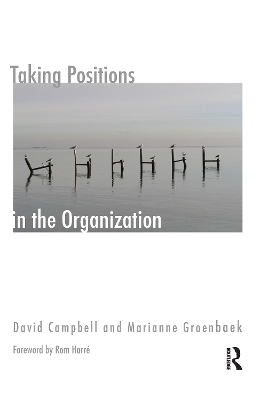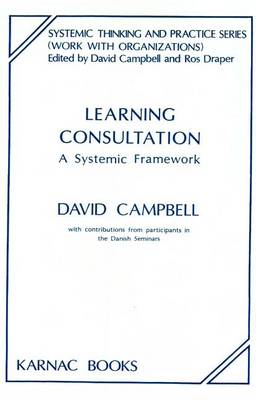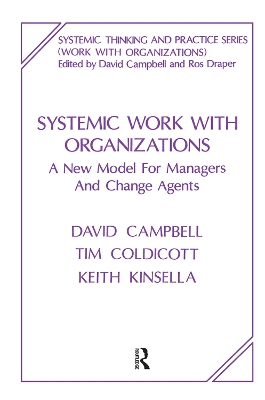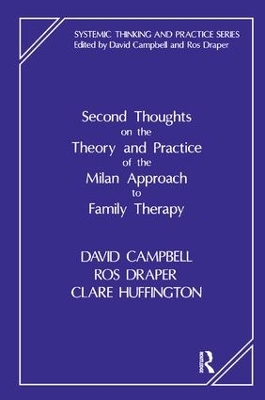The Systemic Thinking and Practice
7 total works
Taking Positions in the Organization
by David Campbell and Marianne Groenbeck
Published 1 January 2006
This book on social constructionist thinking addresses the manager's job for creating reflective space for people to observe themselves and others. It explores broad societal and organizational discourses that offer positions from day-to-day realities that govern behaviour are constructed.
This book presents the dynamics of organisations from a social constructionist viewpoint, taking the organisation as something that is constructed continuously through individual interactions with others, both within and without the organisation.
This reader-friendly and stimulating volume, indispensable to anyone interested in supervision from a systemic perspective, emerged from a conference organised jointly by the Institute of Family Therapy and the Tavistock Clinic in London. It is focused on developments within supervisions and reflects the increasing need for clinical supervisors in advanced level family training courses. The central theme of the book is the application of systemic thinking to the field of supervision. The complexities of topics involved in this area are fully engaged by the many contributors. The book is organised into four main sections, each ending with a useful and unifying commentary from the editors.
A book which will illuminate the learning process from the perspective of the teacher as well as the learner. The experiences of the various contributors will empower the reader to take more personal risks in their own learning.
Systemic Work with Organizations
by David Campbell, Tim Coldicott, and Keith Kinsella
Published 1 January 1994
Systemic Work with Organizations explores a powerful new perspective on the challenges faced by managers and consultants who work in large organizations. Building on principles and methods originally developed in the family arena, the authors show how an emphasis on connection, context and communication can help managers and others involved in change, deal with issues of identity, leadership, and learning faced by staff in today's complex work environment.The main thesis is that one way cause and effect thinking and a central focus on the role of the individual, is no longer sufficient. Managers and change agents now need to make use of the insights and interventions offered by a systemic perspective that highlights the roles played by circularity and reflexivity in how people construct shared meaning in human systems.In early chapters the three authors develop bridges between the family and organizational fields, exploring the ideas and methods of systemic and constructionist thinking in preparation for the three detailed case studies which illustrate systemic thinking in action.
Systemic Approach to Consultation
by David Campbell, Ros Draper, and Clare Huffington
Published 1 January 1991
A Systemic Approach to Consultation discusses the application of systemic thinking to work within organizations. The authors draw on their experiences of consulting with teams, departments and whole organizations in both the public and private sectors. They describe their work as an integrated approach called Development Consultation, which focuses on the beliefs and behaviors in the wider system which makes it difficult for organizations to manage their own processes of change. The authors then discuss the way they formulate systemic problems and the interventions, particularly the interviewing technique, which they have used in numerous case examples. The book is intended as a handbook for professionals from any discipline who are engaged in consultation work.
Second Thoughts on the Theory and Practice of the Milan Approach to Family Therapy
by David Campbell, Ros Draper, and Clare Huffington
Published 31 December 1992
Second Thoughts on the Theory and Practice of the Milan Approach to Family Therapy is a full discussion of the way the original techniques of the Milan Approach have been affected by current thinking in the family therapy field. Hypothesizing, neutrality and circularity, for example, are all redefined in response to the challenge of new clinical problems, such as child abuse, and new thinking from areas such as linguistics and feminine. The authors refer back to their original article "Working With the Milan Method: 20 Questions" in order to chart the changes which have taken place over the last ten years and, similarly, richly illustrate the present work with clinical examples.






